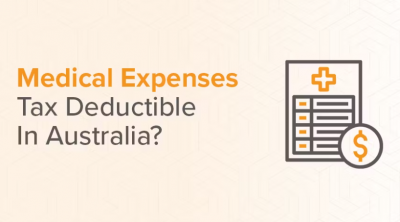Unpaid ATO debts are about to become a far pricier problem for many taxpayers.
From 1 July 2025, interest charges imposed by the Australian Taxation Office — including the general interest charge (GIC) and shortfall interest charge (SIC) — will no longer be deductible for tax purposes. The rule applies to all tax debts, whether they arise from previous or future income years.
With the GIC currently at 11.17%, ATO interest ranks among the highest-cost forms of borrowing. Now that the tax deduction is off the table, those relying on ATO payment arrangements could find themselves paying a steep premium for the privilege of deferring their tax liabilities, such as arrangement of payment plan.
Refinancing ATO Debt
One way businesses can reduce the impact of these changes is by refinancing their ATO debts through a bank or other lender. Unlike the ATO’s GIC or SIC, interest on commercial loans may be deductible, provided the borrowed funds are used in connection with business activities.
For example, if the borrowing is used to pay tax liabilities directly linked to your business operations, the interest may be deductible. This could include payments for:
- Income Tax
- Goods and Services Tax (GST)
- PAYG instalments
- PAYG withholding for employees
- Fringe Benefits Tax (FBT)
However, deductibility will depend on the nature of the underlying debt and how the borrowed funds are applied. It’s important to seek advice before proceeding, as not all refinanced tax debts will result in deductible interest expenses.
Individuals
For individuals, the tax treatment of interest on loans used to pay ATO debts depends primarily on how the tax debt arose.
- Sole traders: If you are carrying on a genuine business, and the tax debt arose from that business, the interest on money borrowed to pay that tax debt is generally tax deductible.
- Employees or investors: If your tax debt stems from salary and wages, rental income, dividends, or other investment income, the interest on money borrowed to pay that debt is not deductible. Refinancing may still make sense to reduce your total interest cost, but it won’t provide any tax benefit.
Example:
Sam operates a café as a sole trader and owes $30,000 in tax, entirely arising from his business profits. He borrows $30,000 to pay this debt. The interest on that loan should be fully deductible because the debt is connected with his business activity.
However, if part of Sam’s tax debt relates to his employment income from a part-time job — say $10,000 out of the $30,000 total — then only two-thirds of the interest would be deductible (reflecting the portion of the debt linked to his business).
Companies and Trusts
For companies and trusts, the rules are similar.
If a company or trust borrows to pay its own tax debts (for example, income tax, GST, PAYG withholding, or FBT liabilities), then the interest will usually be deductible, provided the debts are connected with the business.
However, if a director or beneficiary personally borrows money to pay the company’s or trust’s tax liabilities, the interest on that personal loan would not normally be deductible to them. This is because the borrowing is not incurred in producing their own assessable income.
Partnerships
The situation becomes more complex with partnerships.
If the borrowing occurs at the partnership level and is used to pay a tax debt arising from a business carried on by the partnership, then the interest should generally be deductible. This includes borrowings used to pay GST, PAYG withholding, or other business-related tax obligations.
However, the ATO has a stricter view when individual partners borrow personally to pay tax debts that relate to their share of partnership income. In such cases, the interest is typically not deductible, as it’s considered a personal expense rather than a business one — even if the partnership itself carries on a business activity.
Practical Takeaway
Leaving debts outstanding with the ATO is now more expensive than ever. With GIC and SIC no longer deductible from 1 July 2025, taxpayers can no longer rely on these interest charges being partly offset through tax savings.
If you are currently on an ATO payment plan or expect a future tax liability, it’s worth reviewing your position. Refinancing tax debts through a commercial lender could potentially offer two advantages:
- Lower interest rates compared to ATO GIC, and
- Possible tax deductibility of interest if the borrowing relates to business activities.
That said, not every refinancing arrangement will qualify for a deduction. For mixed-purpose debts (for example, partly business and partly personal), interest deductions must be apportioned.
If you’re unsure whether refinancing makes sense in your situation, it’s best to seek advice before arranging any finance. With the right structure and strategy, you can manage your tax debts more efficiently and avoid unnecessary costs.
Need Help?
By working with us as your professional tax accountant and mortgage broker, you can be confident that your loans are structured to protect your tax position, maximise deductions, and avoid costly mistakes, giving you greater peace of mind and more control over your financial future.
Pitt Martin Group is a firm of Chartered Accountants, providing services including taxation, accounting, business consulting, self-managed superannuation funds, auditing and mortgage & finance. We spend hundreds of hours each year on training and researching new tax laws to ensure our clients can maximize legitimate tax benefit. Our contact information are phone +61292213345 or email info@pittmartingroup.com.au. Pitt Martin Group is located in the convenient transportation hub of Sydney’s central business district. Our honours include the 2018 CPA NSW President’s Award for Excellence, the 2020 Australian Small Business Champion Award Finalist, the 2021 Australia’s well-known media ‘Accountants Daily’ the Accounting Firm of the Year Award Finalist and the 2022 Start-up Firm of the Year Award Finalist, and the 2023 Hong Kong-Australia Business Association Business Award Finalist.
Pitt Martin Group qualifications include over fifteen years of professional experience in accounting industry, membership certification of the Chartered Accountants Australia and New Zealand (CA ANZ), membership certification of the Australian Society of Certified Practising Accountants (CPA), Registered Australia Tax Agents, certified External Examiner of the Law Societies of New South Wales, Victoria, and Western Australia Law Trust Accounts, membership certification of the Finance Brokers Association of Australia Limited (FBAA), Registered Agents of the Australian Securities and Investments Commission (ASIC), certified Advisor of accounting software such as XERO, QUICKBOOKS, MYOB, etc.
This content is for reference only and does not constitute advice on any individual or group’s specific situation. Any individual or group should take action only after consulting with professionals. Due to the timeliness of tax laws, we have endeavoured to provide timely and accurate information at the time of publication, but cannot guarantee that the content stated will remain applicable in the future. Please indicate the source when forwarding this content.
By Zoe Ma @ Pitt Martin Tax





